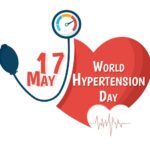New Delhi, July 30,2018 : Representational Image
Immediate Health Effects
Drownings are the leading cause of death from floods and are more likely to occur from flash flooding. Most fatalities occur when using a motor vehicle and attempting to cross flooded roads or from crashes on wet roadways. Drownings also occur during evacuation and rescue.
Injuries can occur during the flood or upon return to an unstable structure.
Water close to electrical lines, circuits, or equipment can cause an electrical hazard.
Floodwaters may disrupt gas lines and chemical storage tanks leading to burns and explosions.
Hypothermia can occur in any season as most flood water is well below human core body temperature.
Health services can be impacted resulting in limited access to care for patients.
Secondary Health Effects
Floodwaters may increase the potential for infectious diseases. Contaminated water can result in waterborne disease transmission (E. coli, Shigella, Salmonella, and Hepatitis A virus). Fecal contamination of livestock and crops may lead to infectious diseases. Temporary shelters may result in crowded and unsanitary living conditions. Vector-borne disease may increase during flooding.
Chemical contamination can result from the unintended spread of fertilizers, pesticides, and industrial chemicals. An awareness of local land-use is important for assessing this risk.
Carbon monoxide poisoning is a common risk due to unventilated gas- powered electrical generators, pressure washers, cooking tanks, and house fires.
Respiratory problems account for high morbidity due to mold and other materials that can be inhaled.
Animal displacement increases the risk of bites and transmission of diseases to humans by rodents and sick animals.
Long-term Health Consequences
Exacerbation of chronic diseases such as asthma, allergies, or ear, nose or throat conditions can occur during the flood and clean-up stages due to poor outdoor and indoor air quality.
Mental health problems are common occurrences after disasters, including floods, especially in children.
Management of mental health problems in children have not been fully addressed in many disaster plans resulting in poor accessibility for this population.
Suicides are 14% higher in adults compared to pre-disaster rates and can increase the mental health consequences in children.
Social disruption can result in significant health consequences. Antisocial/violent behavior (e.g. assaults, gunshots, rape). Destruction of public health infrastructure. Poor nutrition due to decreased food supplies and livelihood.
Dr KK Aggarwal
President Heart Care Foundation of India







